 Senior Da’Mya Brittian, Marketing major with a minor in Computer Information Systems
Senior Da’Mya Brittian, Marketing major with a minor in Computer Information Systems
How are you involved at UCA?
I work at the Veterans & Military Resource Center, and I am in the Student Veterans of America. I am able to work here and join SVA due to the courage of my parents. They both served in the military, and this is my way to show appreciation and do my part without enlisting.
I was “Most Outstanding Freshman” in the UCA Bear Marching Band for color guard. I also was “Dean for a Day” last semester, one of the few students selected to meet with their College Dean as well as the Provost.
What drew you to the business industry?
Every time I see an advertisement, I analyze every aspect of it – why they chose the colors they are using, why that font, how there is blank space on one side, and how I could make it better. This constant analysis made me want to pursue marketing to better understand and improve all aspects related to marketing for wherever I end up working.
Tell us about your experience outside the classroom that will help your career.
Research
 I learned about the opportunities and joy that arise from taking the path of doing research. I did not know much about how to take this path, but presenting at the Atlantic Marketing Association conference in September increased my interest. Dr. Jihoon Jhang and I presented “The Effect of AI Disclosure on Donation Intentions.” The study examined how AI disclosure influences donation intentions. It utilized a 2×2 between-subjects design, investigating whether revealing the use of AI and whether the girl in the photo was smiling or frowning impacted people’s willingness to donate.
I learned about the opportunities and joy that arise from taking the path of doing research. I did not know much about how to take this path, but presenting at the Atlantic Marketing Association conference in September increased my interest. Dr. Jihoon Jhang and I presented “The Effect of AI Disclosure on Donation Intentions.” The study examined how AI disclosure influences donation intentions. It utilized a 2×2 between-subjects design, investigating whether revealing the use of AI and whether the girl in the photo was smiling or frowning impacted people’s willingness to donate.
Internship
I learned about the internship through Handshake. I chose my internship because it was related to my field and allowed me to view other aspects of the company and paths that are not related to my major directly. I was able to spend a week with each different sector of the company and broaden my knowledge of what it takes to run a business.
Service
I have also volunteered at the Arkansas Food Bank often, and it has helped me with soft skills. I talk to strangers while I volunteer, and it helps with networking. It helps me also be grateful for the position I am in and reminds me how important it is to give back.
What do you plan to do after graduation?
After I graduate in December 2024, I plan to go into the field of marketing and use the knowledge from my degree to leverage my application above others.
What tips or advice would you give to new, current, or prospective business students?
Network with your professors. Going to my professors during their office hours or talking to them in the hallways has helped them remember me and get to know me better. In turn, they can be a reference for you or you can know them better and feel comfortable asking questions in class. That all together helps not only you and the professor, but also other students who might follow your lead.

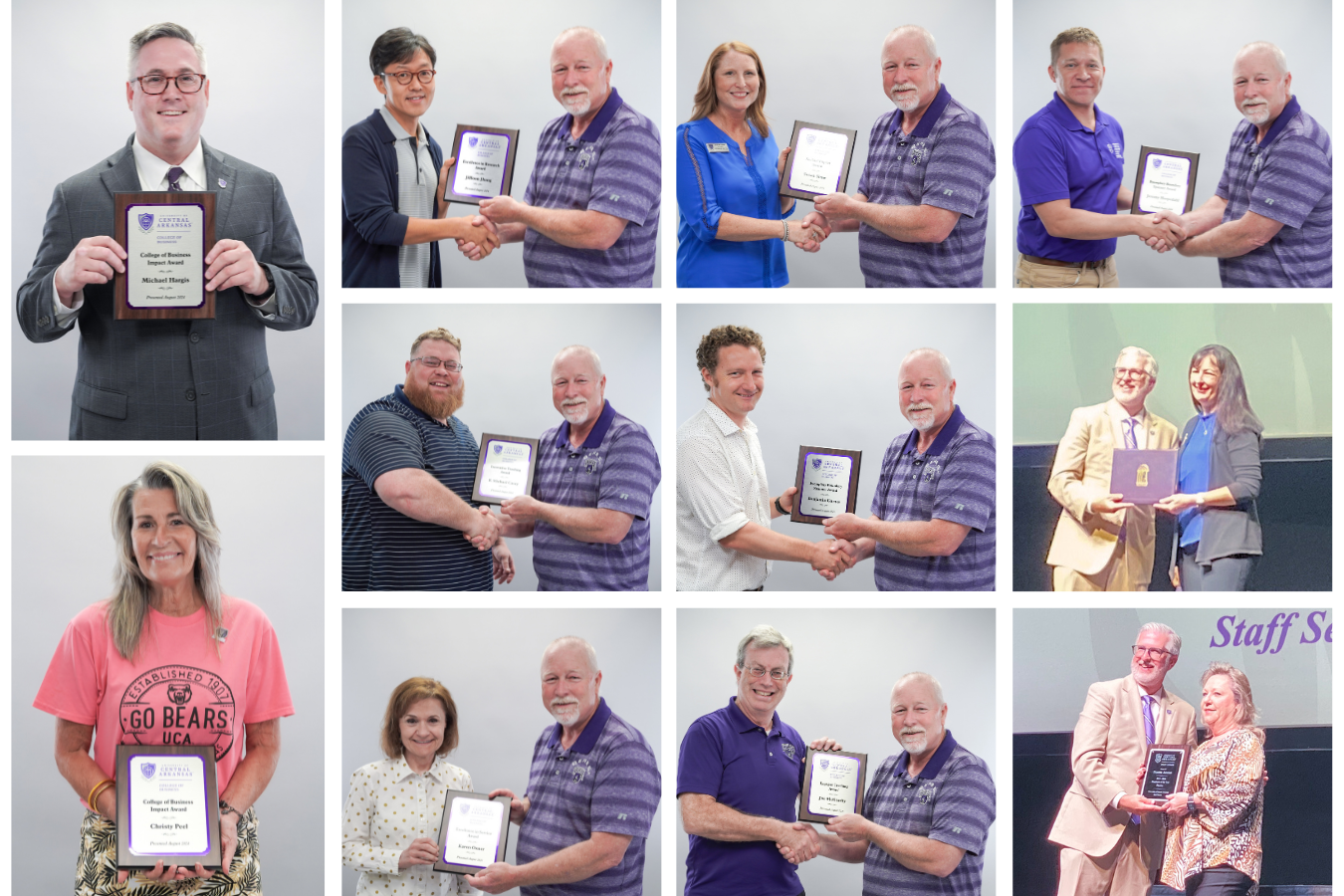

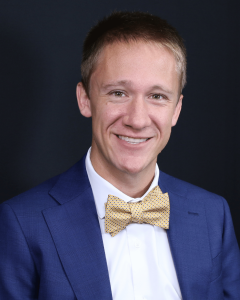 In this interview,
In this interview, 
 Dr. Joe Cangelosi, Professor of Marketing, shares about his research, advice for students, and what brings him the most enjoyment as a Professor.
Dr. Joe Cangelosi, Professor of Marketing, shares about his research, advice for students, and what brings him the most enjoyment as a Professor.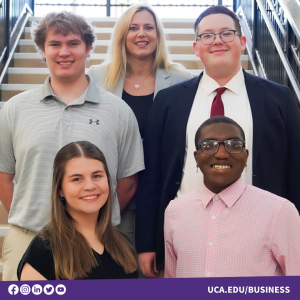 Congratulations to business students Michael Isaac, Caitlyn Bellamy, Mason Smith, and Jayce Burney, led by Dr. Louisa Moseley, who recently won first place in the “Up to Us” national competition for their submission entitled, “Aligning Fiscal and Climate Policy.” The team will present at the Civic Learning and Democratic Engagement meeting in Boston later this month.
Congratulations to business students Michael Isaac, Caitlyn Bellamy, Mason Smith, and Jayce Burney, led by Dr. Louisa Moseley, who recently won first place in the “Up to Us” national competition for their submission entitled, “Aligning Fiscal and Climate Policy.” The team will present at the Civic Learning and Democratic Engagement meeting in Boston later this month.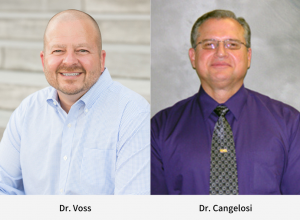 UCA Management
UCA Management 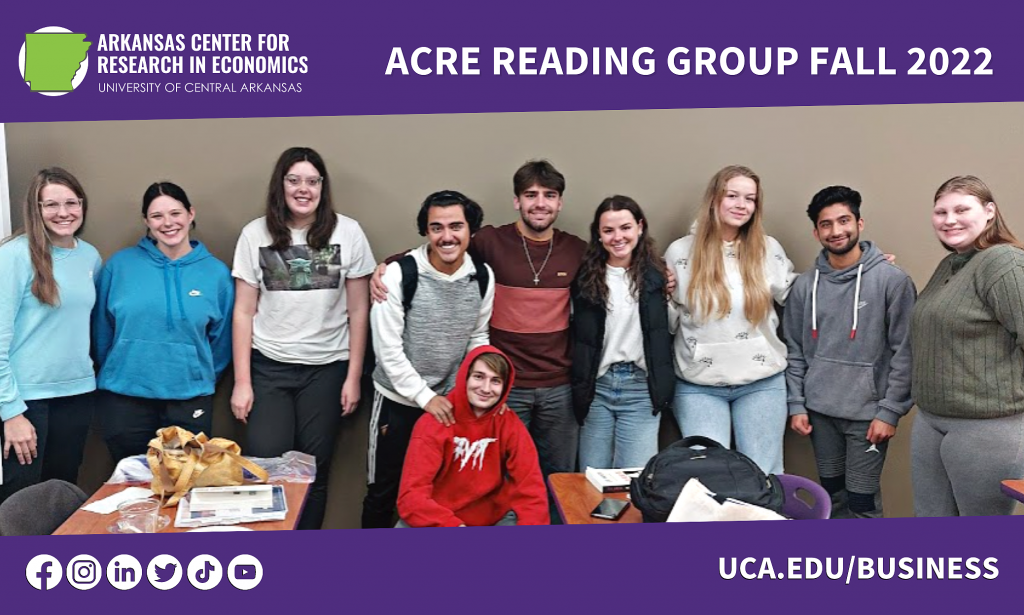 Just before Thanksgiving, around 20 College of Business students were awarded scholarships from the
Just before Thanksgiving, around 20 College of Business students were awarded scholarships from the